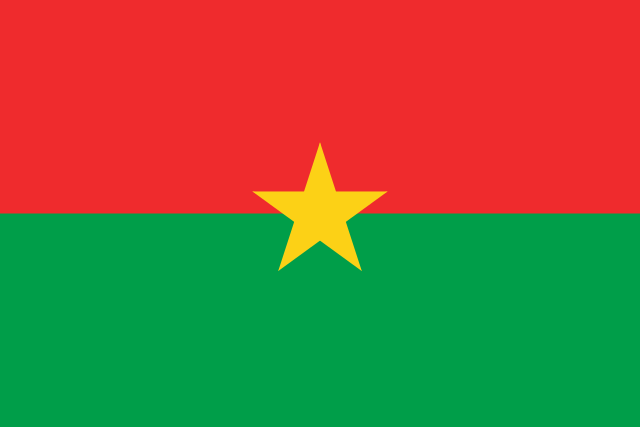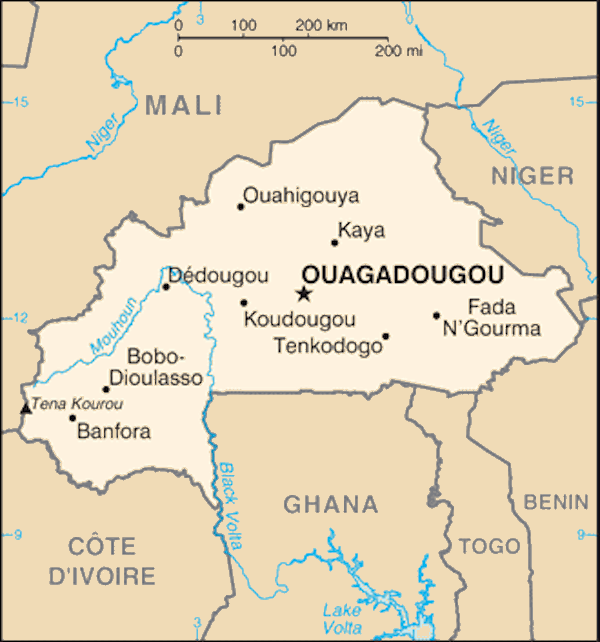The Economic Community of West African States (ECOWAS) sent senior officials to member-state Burkina Faso to meet with Col. Isaac Zida, who seized power on Saturday following the emergence of a constitutional power vacuum last week.
According to Reuters, this meeting resulted in a one-year transition plan that will rapidly end on military rule and (they hope) be minimally deviated from the existing elections calendar:
Three West African presidents urged Burkina Faso on Wednesday to appoint a transitional government to guide the country to elections next year following the people’s overthrow of longtime ruler Blaise Compaore last week.
Ghana’s President John Dramani Mahama led the delegation from the West African bloc ECOWAS to help Burkina Faso plot a path to a civilian-led transition after the military named a senior army officer as head of state on Saturday.
Mahama, the current ECOWAS chairman, held talks with Lieutenant Colonel Isaac Zida, opposition politicians, Compaore’s supporters, religious leaders and civil society groups. There was a general consensus in favour of a civilian-led interim government, he said.
“There were going to be elections next year. We believe that we should just work with that election date, which is next November,” he said. “This means there will be a transitional government for one year and a new president will be elected.”
Nigerian President Goodluck Jonathan and Senegalese leader Macky Sall, part of the ECOWAS delegation, agreed with the timetable, Mahama said.
A specific proposal was outlined for trying to find a consensus interim leader from the civilian community who can guide the transition over the coming year until elections are held:
Delegates from the meetings with Mahama said that all the separate groups had been asked to select three candidates for the interim presidency, which would be discussed in a plenary meeting later on Wednesday.
Mahama said the presidents had recommended that members of the interim authority should not be permitted to stand in the elections next year.
The existing Constitution of Burkina Faso, which I was reading on Saturday, already identifies a complex network of interest groups, religious communities, etc. which makes it easier to figure out who has quasi-constitutional role in sorting out a crisis like this. Presumably these groups were the ones represented at that meeting and are the ones who will be suggesting nominees for leadership roles in the transition administration.
The 15 member states of ECOWAS have, collectively, a vast amount of experience with military coups and transitions to democracy. Not necessarily good experience or track records, but they have the record to work from.
Although a few members, like Senegal (whose president was at the meeting), have actually avoided the blight, most of them have experienced at least one coup — if not a half dozen or more — since the end of colonialism. In just the past 15 years, for example, there were at least six successful military coups in ECOWAS members Côte D’Ivoire, Guinea-Bissau, Guinea, Niger, Guinea-Bissau again, and Mali. Throw in other improper transfers of power like the (still unresolved) 2005 Togo presidential succession and the list starts to grow pretty fast. Burkina Faso, which had managed to prevent coups for 27 years under President Compaoré — an apparent aberration — is actually on number seven now, which is a similar experience to Nigeria and Ghana, though they too have managed to maintain stability for a while, and have had democratic handoffs. Meanwhile, neither Togo nor The Gambia actually have democratic governments or any plan to transition toward that. One wonders exactly how well this Burkina Faso plan is going to work, given the ECOWAS record in general.
In fact, I’m not fully convinced that a stable transition is even possible in Burkina Faso without substantial military involvement (and heavy supervision from the international community). On the one hand, military-guided transitions to democracy have a super high failure rate (not sure if that’s adjusted for economics though); so that’s an argument for a rapid transfer. But on the other hand, Burkina Faso has 40+ political parties, an absurd and borderline non-functional constitution (now suspended by the military), no legitimate successor to the presidency, and so on. Thus, I’m kind of thinking the military might actually be the only valid option here for overseeing the transition, as it serves as a unifying factor cutting across competing affiliations.
I’m not even sure elections held under the existing system could result in anything that could actually set up a transitional government or interim constitution. And if a civilian is chosen to oversee the transition, there’s a risk of “playing favorites” with one of the forty factions. I hope, however, that the ECOWAS plan for selecting a consensus interim leader can actually find that necessary consensus. The next few months should also be used to consolidate the vast array of parties into a handful of reasonable competitive contenders.
Read more





